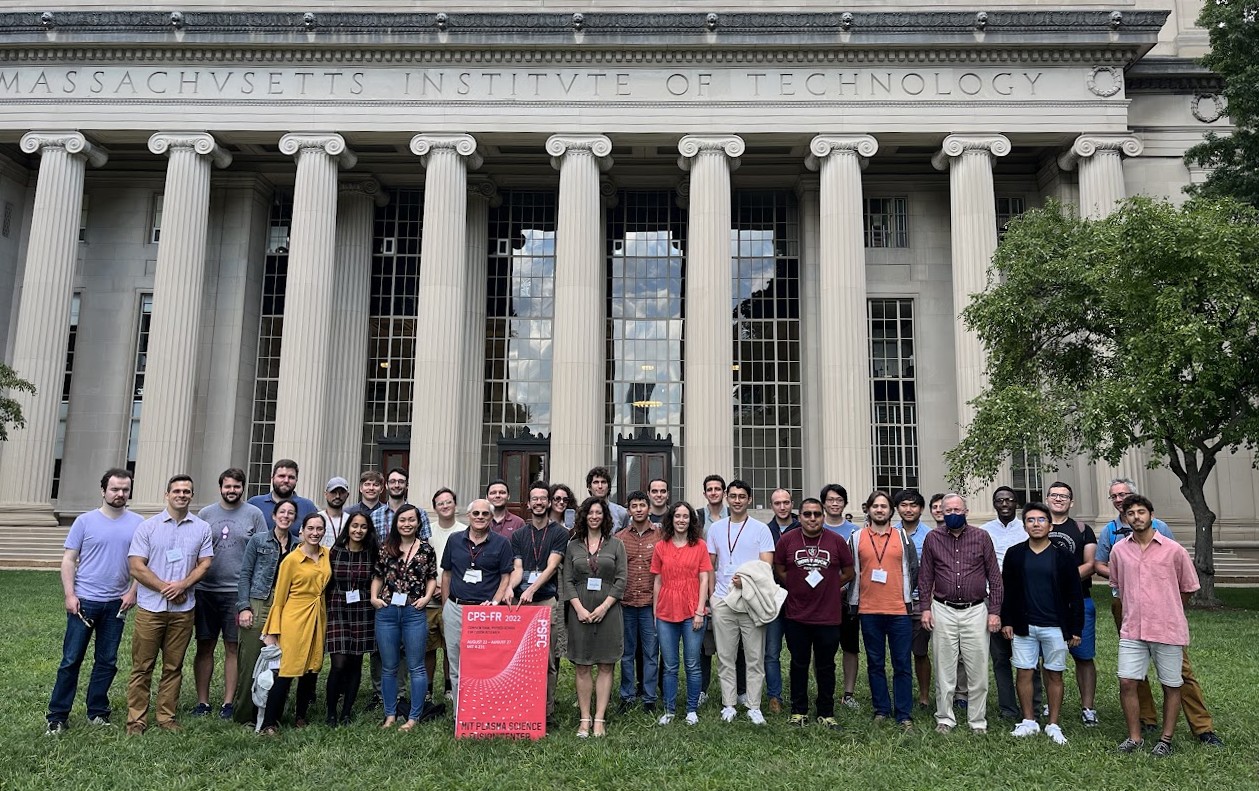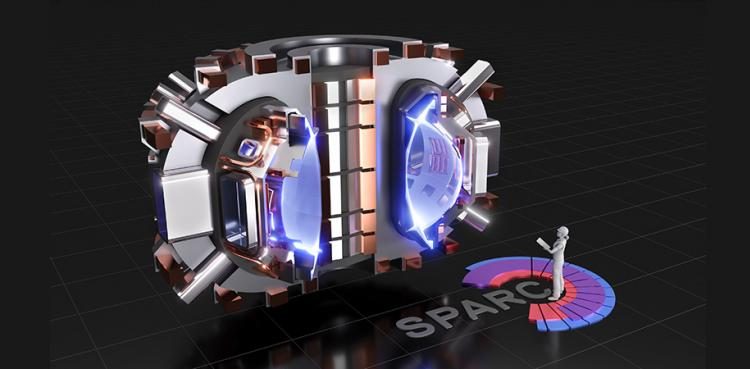
The Plasma Science Fusion Centre (PFSC) at the Massachusetts Institute of Technology (MIT) hosted last summer the 3rd Computational Physics School for Fusion Research (CPS-FR) in Boston, USA.
For the last 3 years, Cristina Rea, physicist and leader of the MIT PSFC Machine Learning Group, has been leading the organisation of the summer school, together with Paul Bonoli, head of the Plasma Theory and Computation group. Their objective is to provide doctorate students and young researchers in general with the necessary skills to tackle the challenges in modern fusion energy research.
From the 22nd to the 27th of August, 50 students from different universities around the world attended lectures and hands on tutorials taught by sector-leading scientists and engineers. Although most students were carrying out their doctoral research at American universities such as MIT, Princeton University or University of California, Berkeley, there were representatives from other continents as well with students from Guatemala, Peru, China and Romania joining the course, as well as Tomas Bensadon from our Fusion Group at the BSC, who was the only representative from a Spanish institution.

The course was divided in four sections, each of which was taught by a different professional: High Performance Computing (HPC), Parallel Programming and GPU Computing, Computational Statistics and Machine Learning. Albert Reuther was in charge of the HPC section. He is the manager of the MIT Lincoln Laboratory Supercomputing Centre and the computer system architect of the MIT Supercloud. Tim Mattson taught the bulk of parallel computing classes. He is the senior principal engineer at Intel and one of the developers of Open MP and MPI. Surrogate modelling and Bayesian optimization were taught by Robert Gramacy, a Professor of Statistics in the College of Science at Virginia Polytechnic and State University. Finally, the last days of the summer school were dedicated to machine and deep learning, taught by Michelle Kuchera, Associate Professor of Physics and Computer Science at Davidson College in North Carolina.
There were invited talks every afternoon, in which keynote speakers presented their work, applying some of the concepts that had been taught in the lectures during the day to state of the art research in fusion sciences. Some highlights were the talks by Pablo Rodriguez-Fernandez (PSFC) on “Optimization projects for the advancement of fusion energy” and Federico Felici (SPC EPFL) on “Magnetic control of TCV tokamak plasmas through Deep Reinforcement Learning”. It is important to mention as well the lectures by Nick Murphy on “Open Plasma Science and Best Practices”, in which he didn’t only speak about the need for good practices in science related to open source software but also in terms of diversity, inclusion, equity and mental health awareness.
During the week there were two social dinners organised by the CPS-FR in which students, lecturers and speakers got to sit together, eat, drink and talk about the content of the day and future possibilities for common enterprises. The summer school ended with a poster session where the students presented their doctoral research to their peers and a visit to SPARC, the under-development tokamak by the PSFC MIT, made in collaboration with the Commonwealth Fusion Systems.
Overall, this was an incredible experience. Having the opportunity to fly to Boston and attend a course at MIT is something that I had never really considered a possibility. From an academic point of view, the sheer magnitude of the academic institutions in Boston and all over the US is impressive. The amount of resources and the quality of the teaching and the research that is carried out there is at a different level from anything that I had previously experienced.
Although these are all things that I had heard about and in a way expected, I was positively surprised by the teaching. Every lecturer that came to the course had a very distinct way of communicating, very different from the teachers I’ve had in Europe. They were communicative, familiar and attentive, their classes were dynamic and exciting, it was clear that they weren’t just experts in their respective fields, but that they also knew how to communicate effectively. A similar thing could be said of the students. I studied Physics in the UK and I could swear that I heard 3 questions from my classmates in the entire duration of the degree. The students at CPS-FR participated constantly, they were confident in their comments and in their questions, and they established a close rapport with the teachers, which created the space for a conversation, something that seems to me unthinkable in a European STEM class.
From a more personal perspective, spending 10 days in the Boston summer, riding a bicycle from Cambridge to MIT and from there to Harvard to participate in events and exhibitions is something that I’ll never forget.
